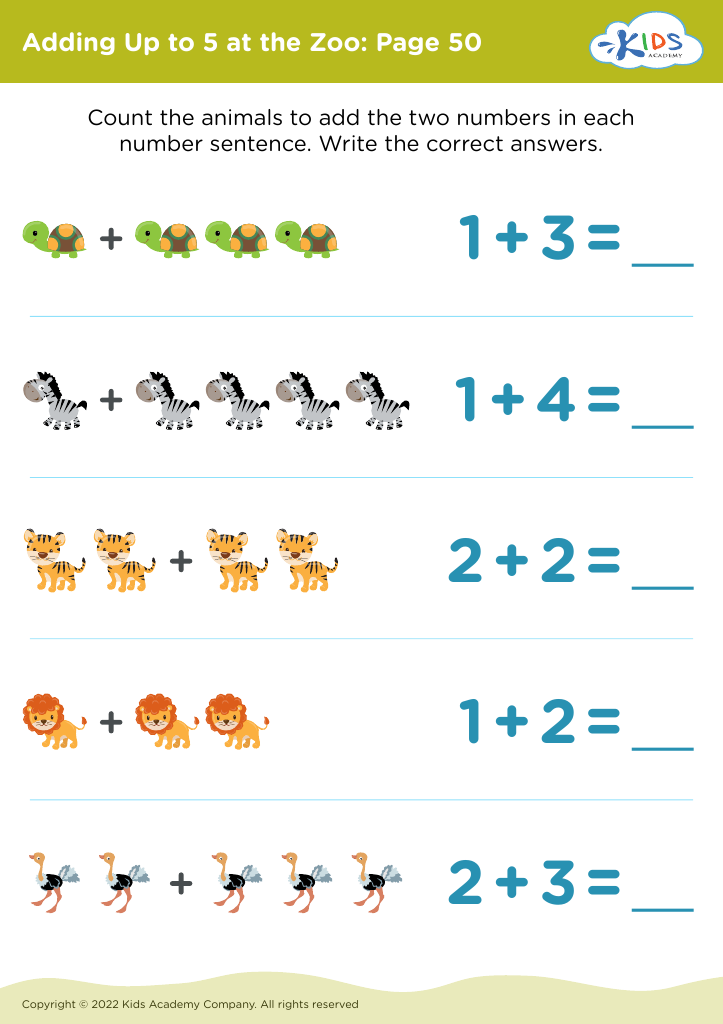Fine motor skills development Addition Worksheets for Ages 5-9
3 filtered results
-
From - To
Enhance your child's fine motor skills while mastering addition with our engaging worksheets designed for ages 5-9! Our printable activities combine fun and learning, perfect for developing essential handwriting abilities and hand-eye coordination. Through colorful illustrations and interactive exercises, children will practice addition in a way that feels like play. These worksheets not only promote mathematical understanding but also encourage dexterous movements, fostering confidence and independence in young learners. Parents and educators can easily incorporate these resources into daily routines, ensuring a holistic approach to education that engages young minds. Download now to inspire curiosity and skill development in your child!
Fine motor skills development is crucial for children aged 5-9 as it directly impacts their academic success, self-care abilities, and overall confidence. At this stage, children are mastering basic tasks such as writing, cutting, and manipulating small objects, which require precise hand and finger coordination. These skills are not only essential for academic activities—like holding a pencil correctly—or for engaging in arts and crafts, but they also play a significant role in everyday tasks like buttoning shirts and tying shoelaces.
When parents and teachers focus on fine motor skills, they equip children with the tools necessary to express themselves creatively, perform well academically, and build their self-esteem. Strong fine motor skills enhance a child's ability to engage in group activities and sports, promoting social interaction and teamwork.
Furthermore, supporting fine motor development lays a foundation for critical thinking and problem-solving. As children manipulate objects and engage in activities that promote dexterity, they enhance cognitive skills alongside physical abilities. For these reasons, it's essential for parents and teachers to incorporate activities that promote fine motor skills, such as puzzles, building blocks, and arts and crafts, into their daily routines, thus fostering holistic development in young learners.










.jpg)









